Every October, colleges and universities around the world recognize Campus Sustainability Month, an international event celebrating and promoting sustainability in higher education.
A nationally recognized leader in sustainability achievements, MSU sustainability advocates are using their platform this month to champion a fundraising project supporting the expansion of an innovative student-led project aimed at deepening campus engagement around sustainability.
The Origins of the ‘Green Wall’
Working with the MSU Office of Sustainability (OOS) and Infrastructure Planning and Facilities (IPF) Landscape Services, a team of students from Sustainable Spartans officially installed the ‘Green Wall’ at the MSU Library Bridge near the Spartan Football Stadium in May of 2021.
Built to enhance the natural beauty and peaceful environment around the Red Cedar River, the Green Wall consists of two 60-foot-long vertical garden systems lining the walls of the bridge with planter boxes made from recycled automobile plastic. The walls were designed to integrate with the university’s landscaping seasonal color scheme and gardens.
Since its installation, the Green Wall has quickly become a beloved gathering place for students, alumni, and visitors on campus, as well as a popular location for graduation photos.
Now an MSU alumni, Kevin Hayes (Political Science, ’22) was one of the student leaders in Sustainable Spartans involved in making the Green Wall a reality. For Hayes, working on the project helped him regain a sense of community and purpose during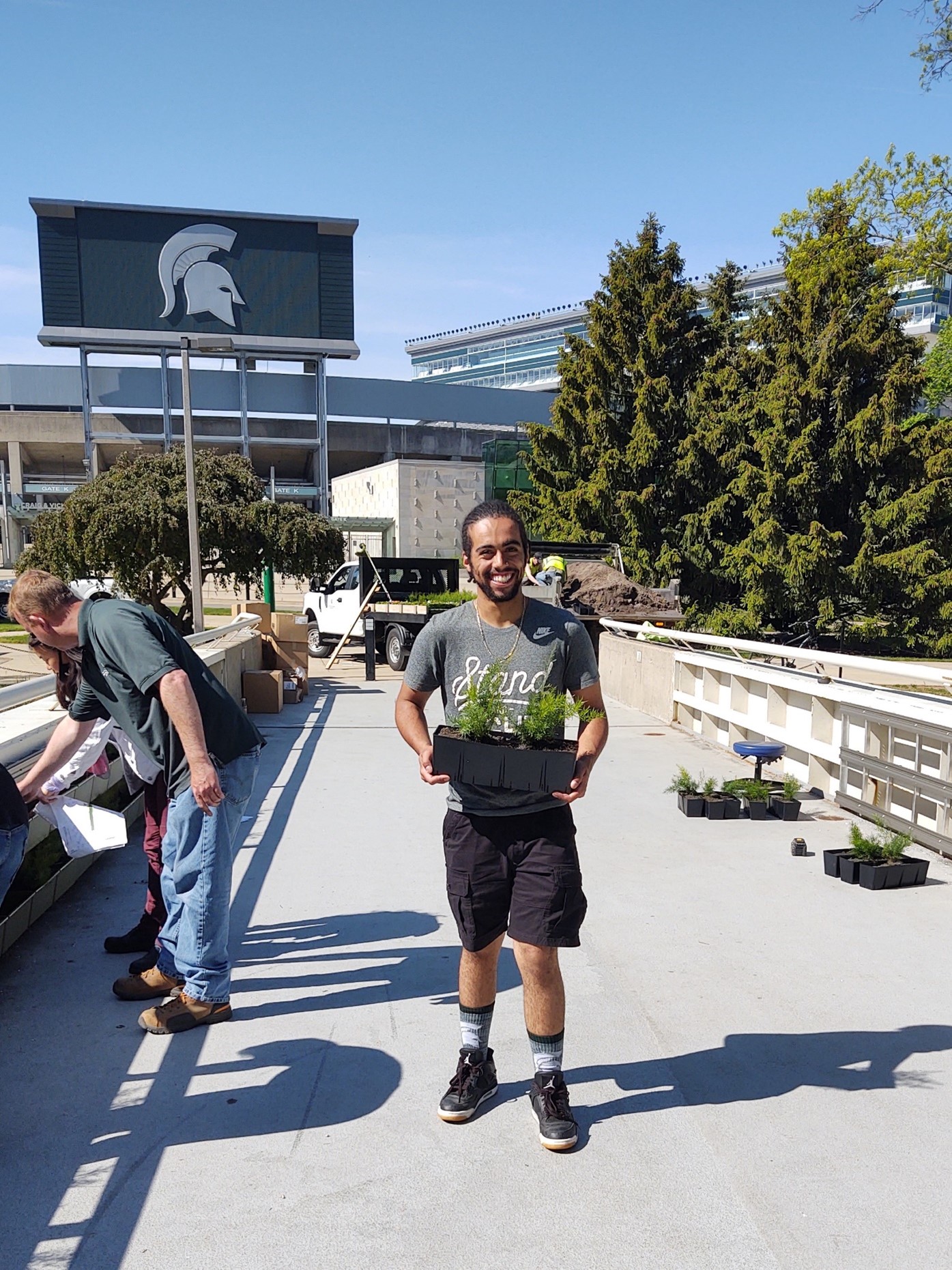 a time filled with disruption due to the COVID-19 pandemic.
a time filled with disruption due to the COVID-19 pandemic.
“The Green Wall provided us with a chance to regain the sense of community and connection that was lost during the worst parts of the pandemic. At a time when it felt like our lives were falling apart, the Green Wall provided us with an opportunity to feel like we were building back and building back big.”
Kevin Hayes, Political Science, ‘22
Hayes is proud that the Green Wall serves as a symbol for what students can accomplish when they collaborate towards a common goal, and he is excited about how it can continue to bring future Spartans together. “We created a vessel that will connect the Spartans of yesterday, today, and the future generation to come.”
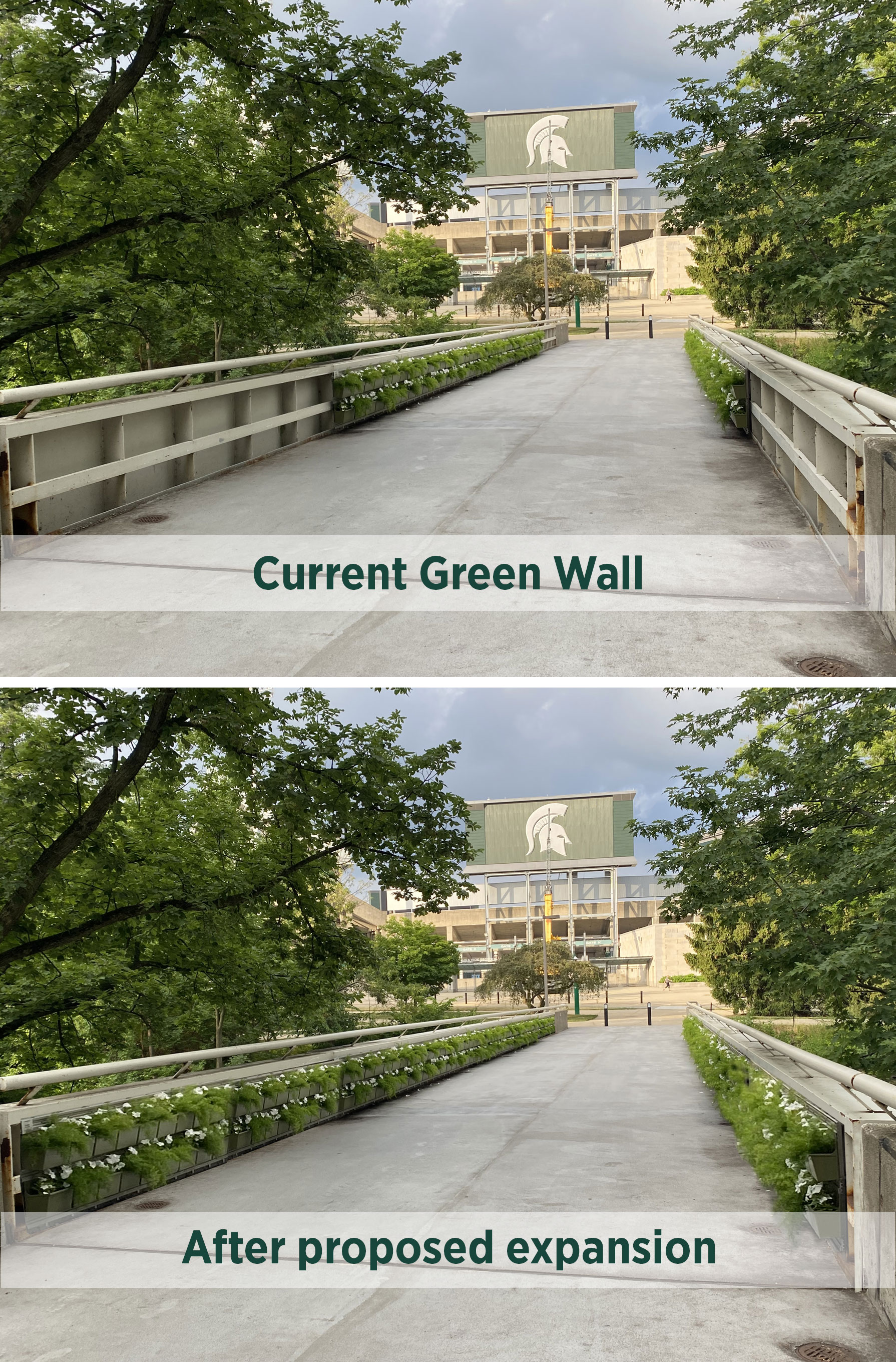
A Pilot Project for Future Expansion
Envisioned as a pilot project for future expansion, IPF and Sustainable Spartans are raising funds to add necessary improvements to the Green Wall. Currently there are several sections of the bridge that are not unified with the rest of the Green Wall. Funds are needed to purchase supplies, building equipment, seasonal plants, and flower boxes so the Green Wall can stretch farther across the Library Bridge. Additionally, the group is planning add an irrigation system to ensure that the Green Wall can remain vibrant throughout the seasons, as well as replacing outdated bollards on the bridge and integrating them into the design of the Green Wall.
Successfully expanding the Green Wall, along with the other enhancements will cost about $20,000. IPF has committed $10,000 to the expansion of the Green Wall and the Spartan community is coming together to fund the reminder of the cost. To date, 70% of the project goal has been raised, but more support is needed to fully fund the expansion of the Green Wall. Watch a video about the project for future expansion here.
Making a Lasting Impact Through Community Action 
Current student leaders from Sustainable Spartans are excited to continue building their legacy at MSU through the expansion of the Green Wall project. For Sustainable Spartans President Nora Kaltenbach (Social Relations and Policy, ’24), this project has created opportunities to work together and learn with individuals across campus. She said the experience has deepened her ties to MSU and hopes others will join together to support this project.
“Spartans should support expanding the green wall because incorporating nature into our infrastructure is a sustainable and timeless way to beautify our campus.”
Nora Kaltenbach, Social Relations and Policy, ’24
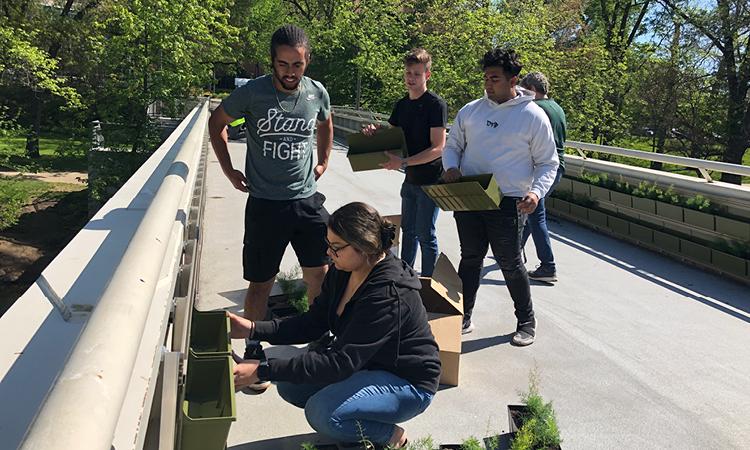
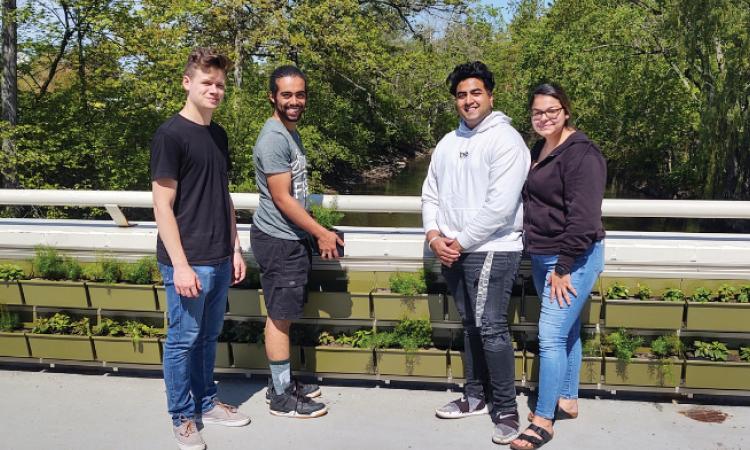
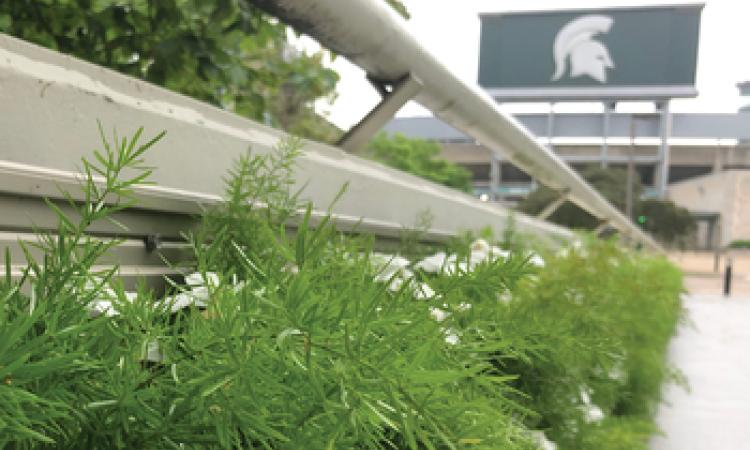
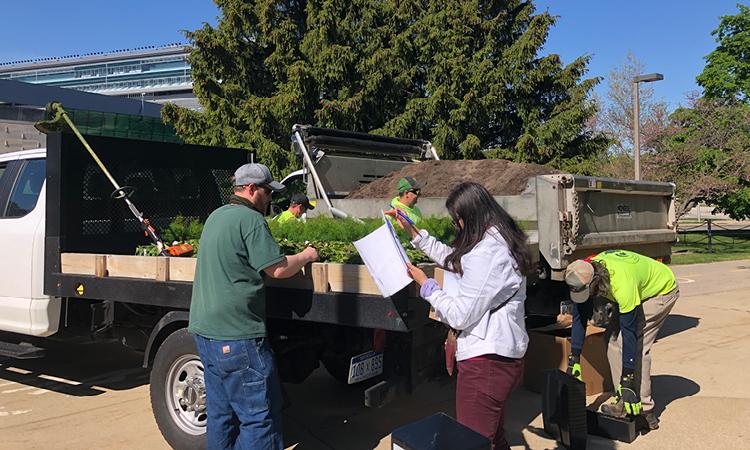
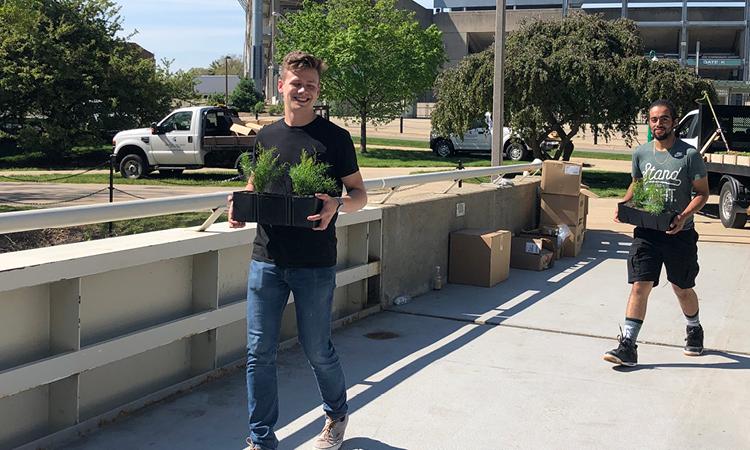
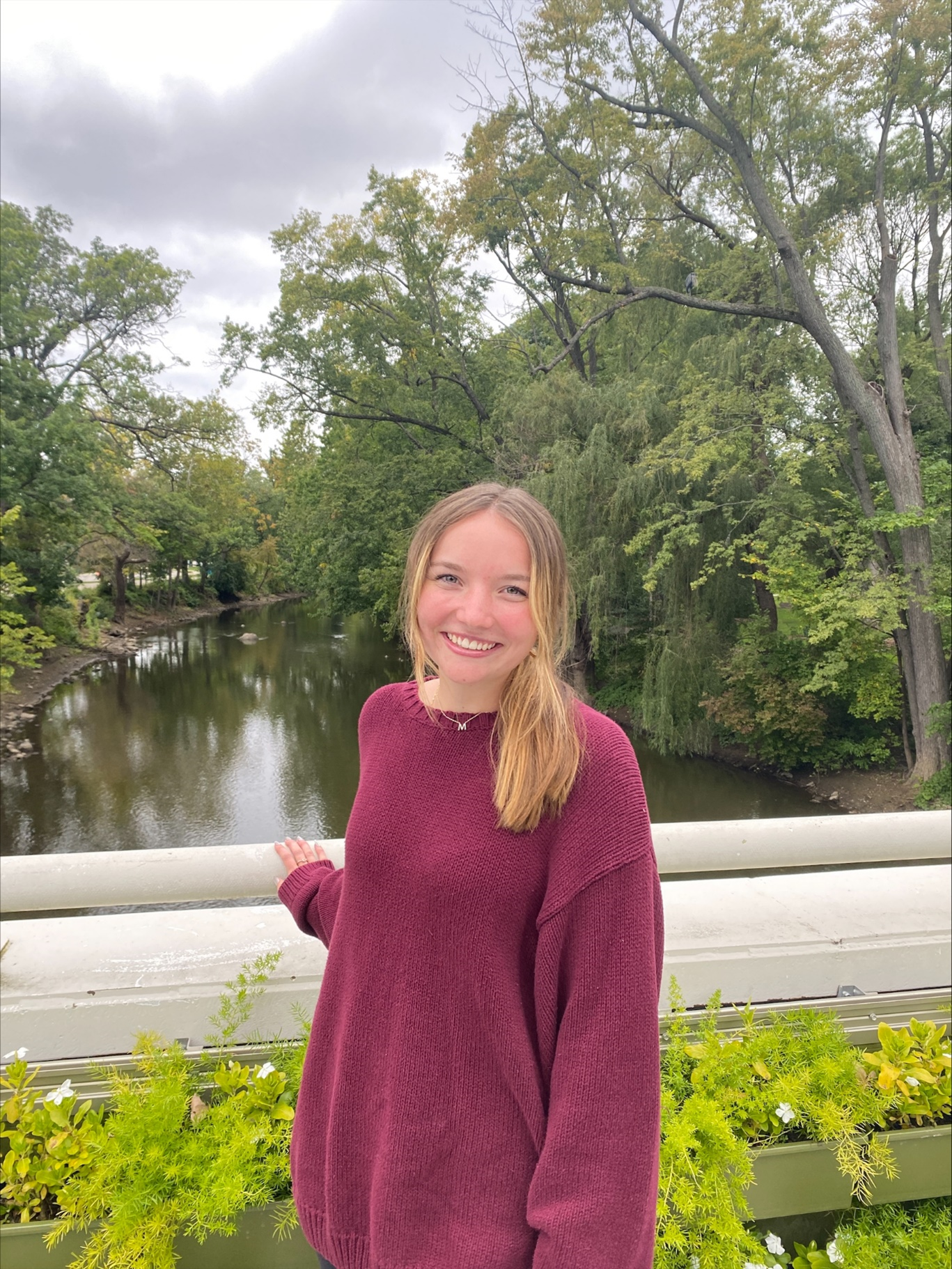 with campus sustainability projects has helped develop her ability to lead, collaborate, and persevere. O’Hare said that every time she walks past the Green Wall she is inspired to continue pushing ideas forward that will shape campus into a place that the students can feel connected to and a part of. “I have developed into a collaborator and leader, growing skills which will carry me beyond my four years here at Michigan State and into my future professional field,” she said. “These experiences have helped direct my interests in sustainability, my love for community engagement, and my overall career goals.”
with campus sustainability projects has helped develop her ability to lead, collaborate, and persevere. O’Hare said that every time she walks past the Green Wall she is inspired to continue pushing ideas forward that will shape campus into a place that the students can feel connected to and a part of. “I have developed into a collaborator and leader, growing skills which will carry me beyond my four years here at Michigan State and into my future professional field,” she said. “These experiences have helped direct my interests in sustainability, my love for community engagement, and my overall career goals.”